
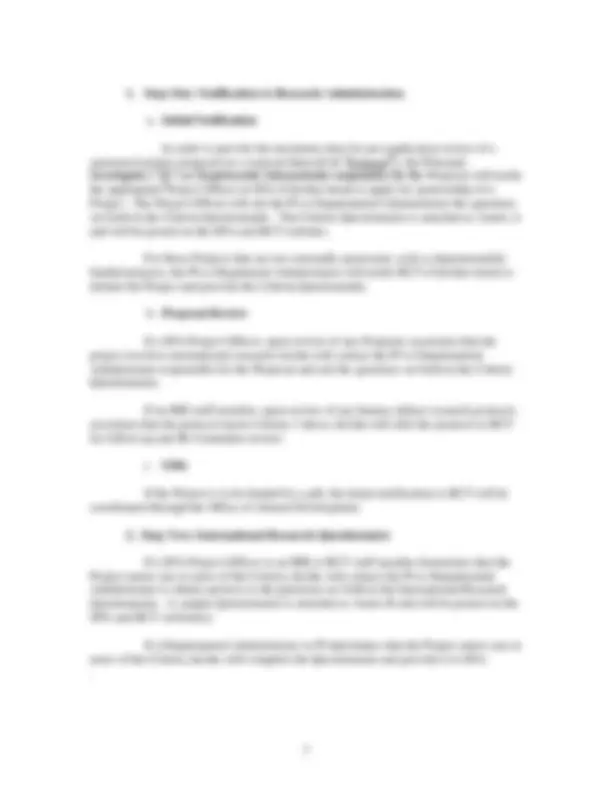
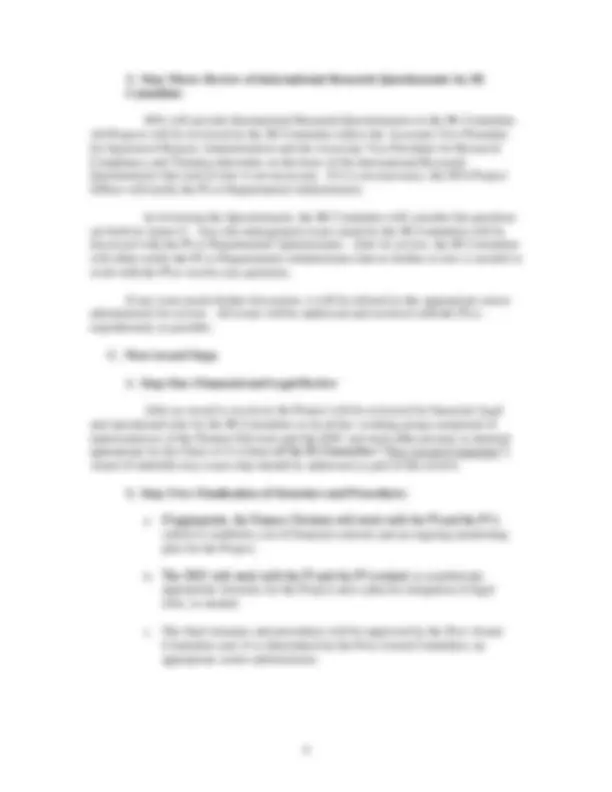
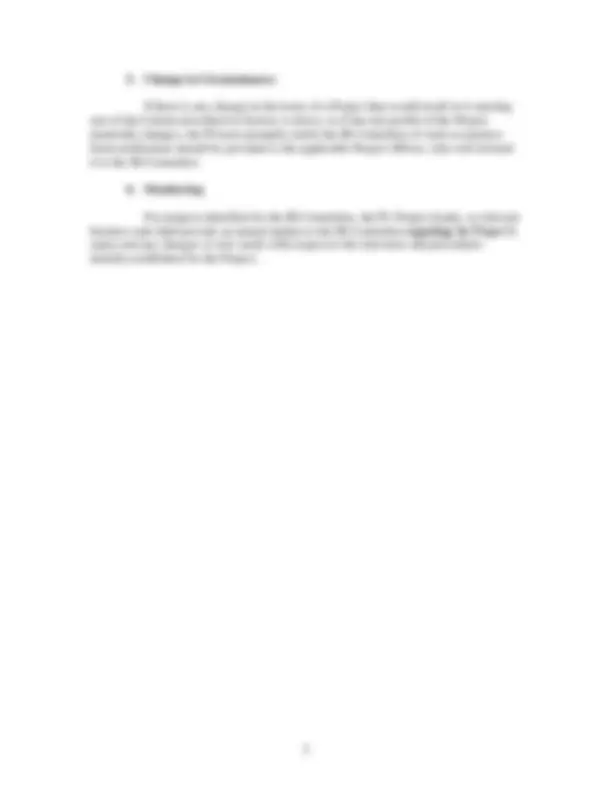
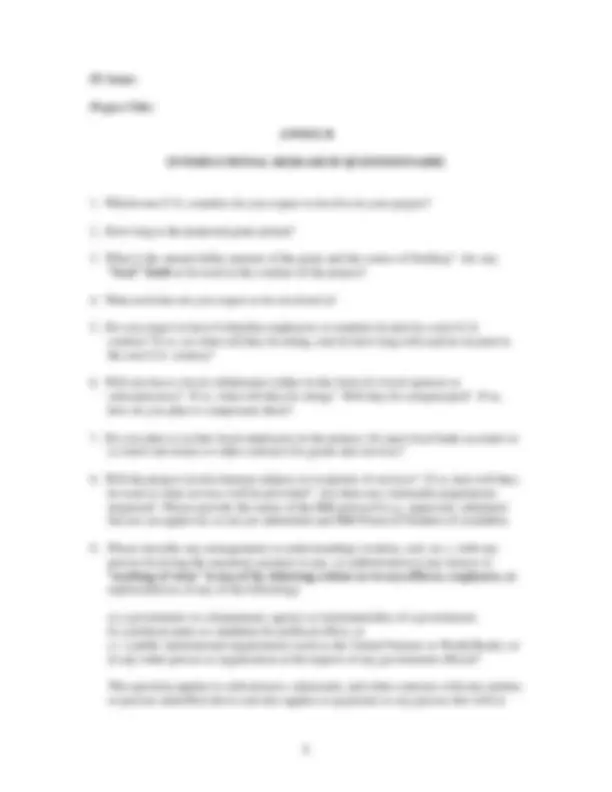
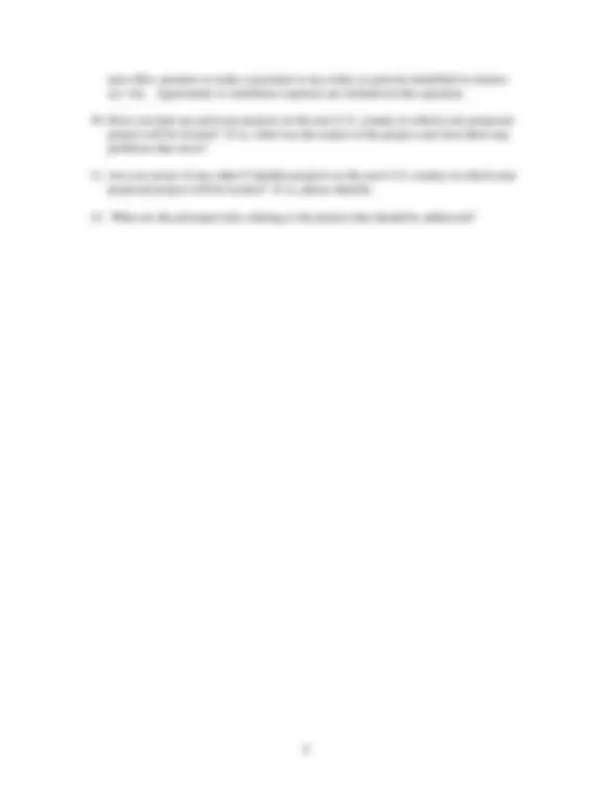
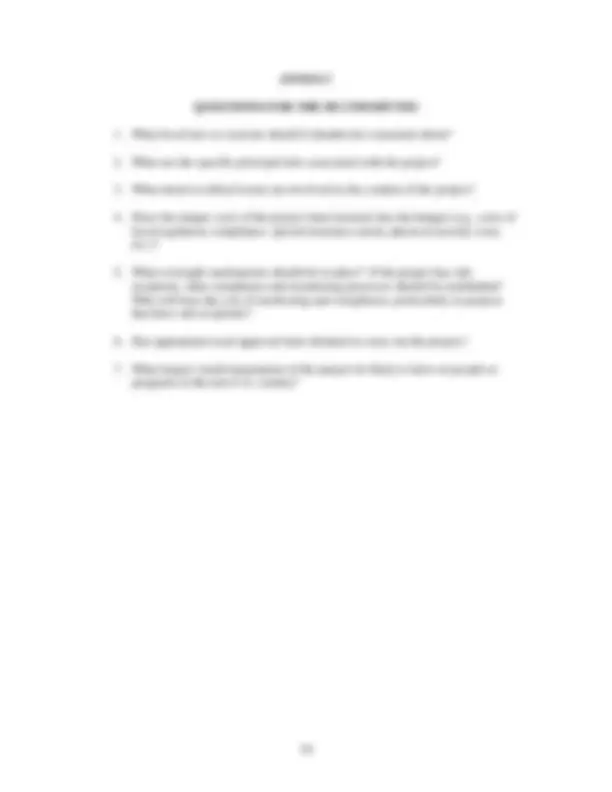


Study with the several resources on Docsity

Earn points by helping other students or get them with a premium plan


Prepare for your exams
Study with the several resources on Docsity

Earn points to download
Earn points by helping other students or get them with a premium plan
Community
Ask the community for help and clear up your study doubts
Discover the best universities in your country according to Docsity users
Free resources
Download our free guides on studying techniques, anxiety management strategies, and thesis advice from Docsity tutors
This memorandum outlines Columbia University’s risk management procedures for international research and service projects. The Procedures are designed to inquire about the risks involved in the projects and how they should be managed. The University will form a standing committee, the International Research Committee (the “IR Committee”), whose members will be appointed by the Executive Vice President for Research (the “EVPR”) in consultation with the Office of the Provost. The document also outlines the criteria for reviewing projects.
Typology: Study notes
1 / 12

This page cannot be seen from the preview
Don't miss anything!







May 24, 2017
This memorandum outlines Columbia University’s risk management procedures (the “Procedures”) for international research and service projects (“Projects”). The University supports and encourages international research and service, but recognizes that the Projects involve special risks that should be considered and addressed.
The Procedures are not designed to second guess the scholarship of a Project or to hinder the grant application process. At the same time, they provide a mechanism for the University to inquire as to what risks should be considered and how they should be managed. In addition, the Procedures will assist the University in the development of a data base of information relating to Projects and to better provide the investigators at the University with international research expertise.
I. Committees
The University will form a standing committee, the International Research Committee (the “IR Committee”), whose members will be appointed by the Executive Vice President for Research (the “EVPR”) in consultation with the Office of the Provost.
The IR Committee will consist of two Officers of Instruction and/or Officers of Research and one representative of each of the Office of the General Counsel (“OGC”), the Office of Sponsored Projects Administration (“SPA”), the Human Research Protection Office Institutional Review Boards (“IRB”), the Finance Division, the Office of the Provost, and the Office of Research Compliance and Training (“RCT”). The IR Committee will carry out the Procedures and will report to the EVPR and the Provost periodically upon request.
In addition, and as needed, the EVPR may appoint an International Research Advisory Committee (the “IR Advisory Committee”). The IR Advisory Committee will consist of Officers of Instruction, Officers of Research and senior administrators who have had experience working on Projects. The IR Advisory Committee will advise on policies relating to Projects.
The EVPR will appoint a Chair or Co-Chairs of both the IR Advisory Committee and the IR Committee.
2007, Nov. 28, 2011, March 19, 2013, January 5, 2016, and May 24, 2017.
II. Procedures
A. Criteria
Generally, only those Projects that meet one or more of the following criteria (the “Criteria”) will be reviewed. The Criteria are the following:
In the event that a Columbia regulatory office (e.g., the IRB or SPA) or an academic unit or department, identifies a Project that does not meet the Criteria, but may nonetheless present significant or novel risks to the University or the Project team, such office or academic unit may, in its discretion, refer such Project to the IR Committee for guidance.
B. Pre-Award
N.B. It is intended that the steps set forth below not delay the review and submission of any grant application and, if necessary, will be completed after an application has been submitted.
3. Step Three: Review of International Research Questionnaire by IR Committee
SPA will provide International Research Questionnaires to the IR Committee. All Projects will be reviewed by the IR Committee unless the Associate Vice President for Sponsored Projects Administration and the Associate Vice President for Research Compliance and Training determine on the basis of the International Research Questionnaire that such review is not necessary. If it is not necessary, the SPA Project Officer will notify the PI or Departmental Administrator.
In reviewing the Questionnaire, the IR Committee will consider the questions set forth in Annex C. Any risk management issues noted by the IR Committee will be discussed with the PI or Departmental Administrator. After its review, the IR Committee will either notify the PI or Departmental Administrator that no further review is needed or work with the PI to resolve any questions.
If any issue needs further discussion, it will be referred to the appropriate senior administrator for review. All issues will be addressed and resolved with the PI as expeditiously as possible.
C. Post-Award Steps
1. Step One: Financial and Legal Review
After an award is received, the Project will be reviewed for financial, legal and operational risks by the IR Committee or an ad hoc working group comprised of representatives of the Finance Division and the OGC and such other persons as deemed appropriate by the Chair or Co-Chairs of the IR Committee (“Post Award Committee”). Annex D identifies key issues that should be addressed as part of this review.
2. Step Two: Finalization of Structure and Procedures
a. If appropriate, the Finance Division will work with the PI and the PI’s school to establish a set of financial controls and an ongoing monitoring plan for the Project.
b. The OGC will work with the PI and the PI’s school to establish the appropriate structure for the Project and a plan for mitigation of legal risks, as needed.
c. The final structure and procedures will be approved by the Post Award Committee and, if so determined by the Post Award Committee, an appropriate senior administrator.
3. Change in Circumstances
If there is any change in the terms of a Project that would result in it meeting one of the Criteria described in Section A above, or if the risk profile of the Project materially changes, the PI must promptly notify the IR Committee of such occurrence. Such notification should be provided to the applicable Project Officer, who will forward it to the IR Committee.
4. Monitoring
For projects identified by the IR Committee, the PI, Project leader, or relevant business unit shall provide an annual update to the IR Committee regarding the Project’s status and any changes or new needs with respect to the structures and procedures initially established for the Project.
any value. “Anything of value” does not, however, include the conveyance of Columbia’s results to the sponsor under the project agreement.
PI Name:
Project Title:
ANNEX B
INTERNATIONAL RESEARCH QUESTIONNAIRE
a) a government or a department, agency or instrumentality of a government, b) a political party or candidate for political office, or c) a public international organization (such as the United Nations or World Bank), or d) any other person or organization at the request of any government official?
This question applies to subcontracts, subawards, and other contracts with any entities or persons identified above and also applies to payments to any person who will in
A. Financial Risks
B. Operational Risks